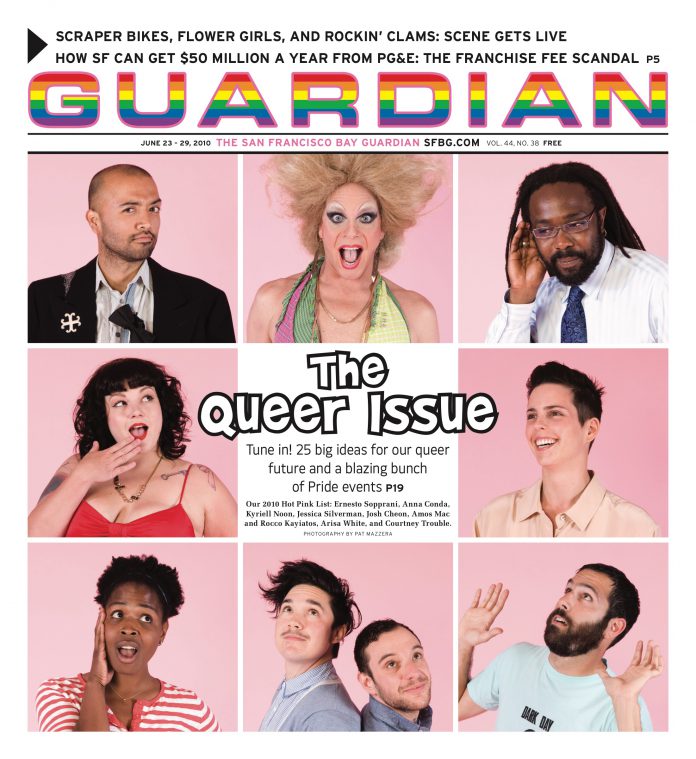arts@sfbg.com
FILM Don’t let Air Doll‘s title fool you. Mannequin (1987) or Lars and the Real Girl (2007) this ain’t. This gritty, Tokyo-set fairytale about an inflatable sex doll who comes to life represents a departure on many fronts for director Hirokazu Koreeda, who has become known for such faintly melancholy studies of quiet perseverance as Nobody Knows (2004) and After Life (1998). Despite its fantastic premise and candid eroticism, Air Doll covers similar emotional territory to those older titles, surveying with no less an empathetic eye the fickleness of human connection, the power of adoration, and the loneliness that seems to be a hallmark of urban life.
Saucer-eyed Korean actress Doona Bae (of 2005’s Linda Linda Linda fame) stars as Nozomi, the titular doll who escapes her devoted owner’s apartment and wanders through the densely packed surrounding streets. Eventually she finds employment at a video store, where she falls in love with a coworker (after he gives her one of the best and queerest BJs ever committed to film). Along the way she learns to tell lies, harbor jealousy, and experience what it’s like to have the "heart [she] wasn’t supposed to have" break. In short, what it means to be human.
All the while, Koreeda never sugarcoats Nozomi’s "vocation," letting sexually frank but never prurient episodes stand in contrast to the film’s more lighthearted moments. But, as I found out when I spoke to Koreeda the day after Air Doll screened at the 2010 San Francisco International Film Festival, that’s part of being human too. My thanks go out to Beth Cary for being such a wonderful interpreter.
SFBG You’ve never made an adaptation before. What initially attracted you to Yoshiie Goda’s manga series?
Hirokazu Koreeda There was one scene in particular that attracted me. In the video shop, when the air doll snags her arm on a nail in the wall and starts deflating and the young male clerk comes over and tends to her wound. At first she is shy and embarrassed but then she starts feeling a real sense of fulfillment and satisfaction as he blows air into her. To me it was like a sex scene, but done with the breath. Using a person’s breath as a way that people commingle and communicate was very interesting to me.
SFBG Air Doll has really divided critics. I think it’s because the film doesn’t stick to a certain tone or mood. Is this what you were aiming for?
HK In a way it was. What I discussed with Doona Bae is that the doll is born like a baby — innocent — and then learns various things about the world by imitating humans. In that process, she sees how poetic things are, how pessimistic things are, and how comedic things are, so she changes as well. I think such a mix of elements is present in our everyday lives, so I wanted the film to reflect that.
SFBG How was it working with Doona Bae? Her performance has such a Giulietta Masina-like quality to it.
HK [Laughs] Actually, before we started filming I suggested that she watch La strada (1954) and Nights of Cabaria (1957), not because I was aiming for a certain style, but because I thought they might be helpful. I also spent about five hours walking her through the entire film (with an interpreter, since she doesn’t speak Japanese). During that time even she would tear up and cry during the sad parts and laugh during all the pleasurable parts. Afterward she said, "I’ve got it. I understand the character now." And in the two months of filming, she didn’t waver from what we discussed at all. She was great.
AIR DOLL opens Fri/25 in Bay Area theaters.

